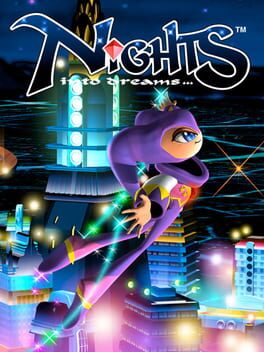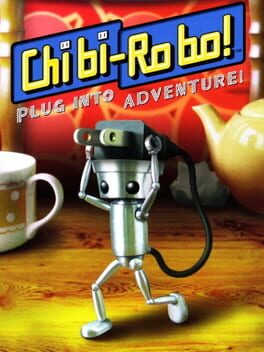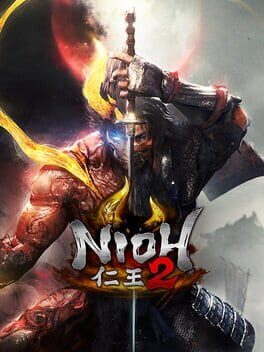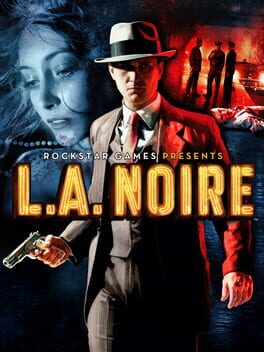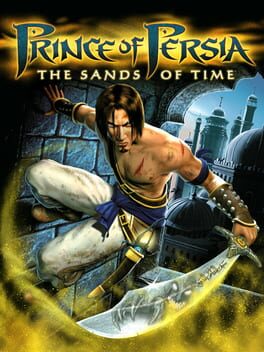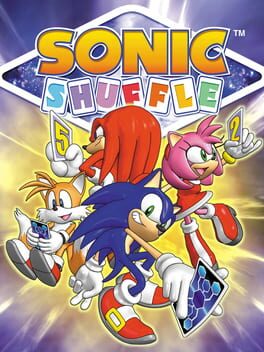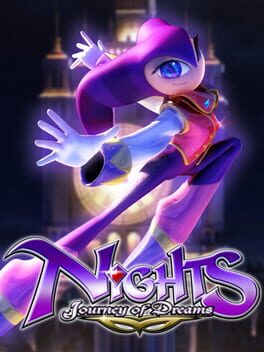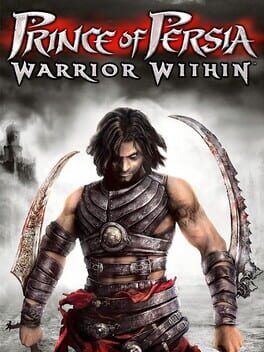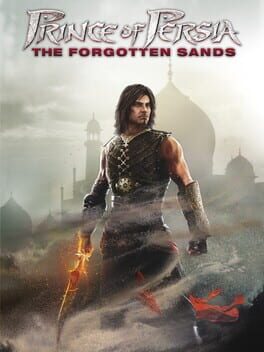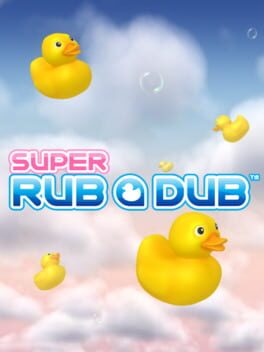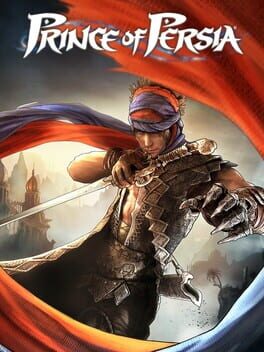MVK
2016
"I know a lot of gamers out there don't have much patience". This line was as true in 2007 as it is now. With that in mind, it's easy to see why The Last Guardian is a pretty divisive game. Doesn't help that the game's lack of polish makes it kinda hard to tell what's intentional and what isn't, at least at first.
To anyone that played ICO, the parallels in The Last Guardian are obvious. In ICO you're in the position of power, taking care of a defenseless girl, in TLG you're actually the small one and have to rely on a huge bird dog thing for pretty much anything, bar some choice moments. While not really original, this dynamic is rare enough to feel different, and the game makes sure to always involve both the player and Trico (hugebirddogthing) at the same time. For people who stick with the game, this is very effective: eventually you'll feel some sort of bond with Trico, considering you went through so many puzzles/platforming sessions with it, making the narrative moments much more earned than they usually are in games of this type.
Trico itself is the main point of contention with The Last Guardian. Instead of what other developers would've done, and probably would've been more immediately functional, TLG aims to make Trico and the experience of bonding with it as realistic as possible: you don't press a button to make it do something, as much as you suggest it does something. You'll point where to go, tell it to jump or break something, and see how Trico reacts to it. This requires patience especially early on, as Trico won't react much to your commands and its animations will be much longer for everything. This is where I think people are mistaken when they say that Trico has faulty AI: they see that their command isn't getting an immediate response, and so they try different things or keep telling it to look at something, when the game did in fact read the command, it's just that Trico itself has to process what's going on. The trick is all in observing the creature, how it moves, how it reacts. I'm not sure how much trickery there is to Trico, but it really did seem like its AI was improving, or at least understanding the commands better, as the creature itself got faster at responding and by the end of the game even mostly understood by itself where to go. What's really impressive is how second nature this becomes eventually, you don't even notice that you're waiting a few seconds every time Trico has to jump, and you figure out when Trico is in the process of doing something or waiting for a command. If Trico were just a big item like in something like Majin and the Forsaken Kingdom (raise your hand if you're one of the 5 people that played that) the game wouldn't resonate nearly as much, for better or worse.
What isn't a point of contention, at least from where I'm standing, is how unpolished the game is. There's some framerate issues, some visual glitches, some really bizarre physics engine flubs, but what I really can't excuse is how bad the camera is. It generally does a good enough job as the game is pretty slow, but in platforming and generally more action-y sequences it has a really hard time tracking what's going on. Which can be made even worse by the fact that the game's collision detection isn't great, especially when it comes to recognizing ledges to grab. I died in perfectly normal platforming sequences more often than I'd like to mention because the boy just doesn't feel like grabbing onto a platform.
Despite all my reservations built up over years of word of mouth, I think The Last Guardian is a worthy sequel to ICO. I can't say everyone who liked ICO will enjoy TLG, as it's not nearly as immediate and requires a lot more time to soak it in, but I would recommend it to anyone who wants something a bit different out of their videogames. Now if you'll excuse me I have to wait for Trico to take a dump for the trophy
To anyone that played ICO, the parallels in The Last Guardian are obvious. In ICO you're in the position of power, taking care of a defenseless girl, in TLG you're actually the small one and have to rely on a huge bird dog thing for pretty much anything, bar some choice moments. While not really original, this dynamic is rare enough to feel different, and the game makes sure to always involve both the player and Trico (hugebirddogthing) at the same time. For people who stick with the game, this is very effective: eventually you'll feel some sort of bond with Trico, considering you went through so many puzzles/platforming sessions with it, making the narrative moments much more earned than they usually are in games of this type.
Trico itself is the main point of contention with The Last Guardian. Instead of what other developers would've done, and probably would've been more immediately functional, TLG aims to make Trico and the experience of bonding with it as realistic as possible: you don't press a button to make it do something, as much as you suggest it does something. You'll point where to go, tell it to jump or break something, and see how Trico reacts to it. This requires patience especially early on, as Trico won't react much to your commands and its animations will be much longer for everything. This is where I think people are mistaken when they say that Trico has faulty AI: they see that their command isn't getting an immediate response, and so they try different things or keep telling it to look at something, when the game did in fact read the command, it's just that Trico itself has to process what's going on. The trick is all in observing the creature, how it moves, how it reacts. I'm not sure how much trickery there is to Trico, but it really did seem like its AI was improving, or at least understanding the commands better, as the creature itself got faster at responding and by the end of the game even mostly understood by itself where to go. What's really impressive is how second nature this becomes eventually, you don't even notice that you're waiting a few seconds every time Trico has to jump, and you figure out when Trico is in the process of doing something or waiting for a command. If Trico were just a big item like in something like Majin and the Forsaken Kingdom (raise your hand if you're one of the 5 people that played that) the game wouldn't resonate nearly as much, for better or worse.
What isn't a point of contention, at least from where I'm standing, is how unpolished the game is. There's some framerate issues, some visual glitches, some really bizarre physics engine flubs, but what I really can't excuse is how bad the camera is. It generally does a good enough job as the game is pretty slow, but in platforming and generally more action-y sequences it has a really hard time tracking what's going on. Which can be made even worse by the fact that the game's collision detection isn't great, especially when it comes to recognizing ledges to grab. I died in perfectly normal platforming sequences more often than I'd like to mention because the boy just doesn't feel like grabbing onto a platform.
Despite all my reservations built up over years of word of mouth, I think The Last Guardian is a worthy sequel to ICO. I can't say everyone who liked ICO will enjoy TLG, as it's not nearly as immediate and requires a lot more time to soak it in, but I would recommend it to anyone who wants something a bit different out of their videogames. Now if you'll excuse me I have to wait for Trico to take a dump for the trophy
Nights into Dreams is a game that is hard to categorize, and a game that I'm sure was a nightmare to market (hence it completely bombing everywhere).
Despite it not really controlling like one, the game functions very similarly to a current 3D Sonic game: you want to get the most points possible and score the best rank, by doing combos or chain actions and what have you.
The difference is though that you're not actually supposed to finish stages in the quickest possible way; the timer the game gives you is actually the time you have to go around the stage over and over and score the most points you can before getting out and moving on to the next segment of the level. This creates a great risk vs reward situation at times where you have to make a very quick decision on whether you want to make just another trip before leaving or if you don't think those 20 seconds or less are enough.
When you realize this, you start understanding the entire flow of the game, the level design starts looking better and better, and the frantic pace of the game and initial sensory overload on the visuals becomes second nature; in general, everything starts to click. This will only happen if you do want to replay this game multiple times, which is another hard sell about this game: if you want to just get it over with once, it will be done in less than 2 hours and you won't really get much out of the experience.
Having said that though, I really wouldn't have minded one more stage per character, because as it is the game only has 7 of them, one of which is repeated twice. They're all great and very well designed mind you, but they go from training wheels to "possible game over" really quickly.
If you're into arcadey games that are meant to be replayed over and over, you can't go wrong with Nights into Dreams. It might take a bit to get used to its unique systems and controls (even the whole aesthetics of it are probably an acquired taste), but if given the time, there's a great game worth discovering and rediscovering here.
Despite it not really controlling like one, the game functions very similarly to a current 3D Sonic game: you want to get the most points possible and score the best rank, by doing combos or chain actions and what have you.
The difference is though that you're not actually supposed to finish stages in the quickest possible way; the timer the game gives you is actually the time you have to go around the stage over and over and score the most points you can before getting out and moving on to the next segment of the level. This creates a great risk vs reward situation at times where you have to make a very quick decision on whether you want to make just another trip before leaving or if you don't think those 20 seconds or less are enough.
When you realize this, you start understanding the entire flow of the game, the level design starts looking better and better, and the frantic pace of the game and initial sensory overload on the visuals becomes second nature; in general, everything starts to click. This will only happen if you do want to replay this game multiple times, which is another hard sell about this game: if you want to just get it over with once, it will be done in less than 2 hours and you won't really get much out of the experience.
Having said that though, I really wouldn't have minded one more stage per character, because as it is the game only has 7 of them, one of which is repeated twice. They're all great and very well designed mind you, but they go from training wheels to "possible game over" really quickly.
If you're into arcadey games that are meant to be replayed over and over, you can't go wrong with Nights into Dreams. It might take a bit to get used to its unique systems and controls (even the whole aesthetics of it are probably an acquired taste), but if given the time, there's a great game worth discovering and rediscovering here.
2005
Chibi-Robo is a game about helping doing house chores, for about 30 minutes. It then becomes about solving marital problems, uncovering the mystery behind an ancient being, and staging a military assault on a pet dog, among many other things. Chibi-Robo is weird. But there's a method to its madness, which makes it very hard to describe.
In broad strokes, Chibi Robo has the structure of a life sim, where you'll want to talk to every NPC, seeing what they're up to, and then doing whatever activity they ask of you. These are all really varied and worth seeking out, as is every possible secret or oddity that is present in the game: Chibi Robo is a game that rewards exploration and experimentation, if something sounds doable, whether it's a possible use of a gadget or something that looks climbable, it's worth trying out because there's a decent chance that it might work. There's not a lot of games that manage this and it's an added asset to a game that starts in a pretty simplistic way but gradually gets more complex by giving content at a rapid enough pace to always give the player something to do, but never so much that it becomes overwhelming.
I could go more in depth with explaining what actually is in the game but I feel that the more I may say about it the more I might ruin, because the unpredictability of the various situations you'll be in will be a major draw for players after the game establishes all its mechanics and locations. Depending on how the individual sees it it might be a negative, since that means that Chibi Robo isn't really a game that expects to be replayed, but either way the less is known about the contents of Chibi Robo the stronger the reaction to it will be.
Chibi-Robo is a game that has "acquired taste" written all over it. There's no way around it: you either find the premise of the game very charming from the very beginning or you'll find the game to be a pretty boring, maybe even annoying experience. But if you are interested whatsoever, I'd absolutely recommend Chibi-Robo. It might not be the deepest game experience, but even 15+ years later there's nothing quite like it, and if you spend the time to get to know every NPC, you'll probably feel a bit melancholy when the credits eventually roll. By that point you'll presumably either move on or you'll hallucinate and get visions of stuffed toys dropping love letters around the house, I guess it depends.
In broad strokes, Chibi Robo has the structure of a life sim, where you'll want to talk to every NPC, seeing what they're up to, and then doing whatever activity they ask of you. These are all really varied and worth seeking out, as is every possible secret or oddity that is present in the game: Chibi Robo is a game that rewards exploration and experimentation, if something sounds doable, whether it's a possible use of a gadget or something that looks climbable, it's worth trying out because there's a decent chance that it might work. There's not a lot of games that manage this and it's an added asset to a game that starts in a pretty simplistic way but gradually gets more complex by giving content at a rapid enough pace to always give the player something to do, but never so much that it becomes overwhelming.
I could go more in depth with explaining what actually is in the game but I feel that the more I may say about it the more I might ruin, because the unpredictability of the various situations you'll be in will be a major draw for players after the game establishes all its mechanics and locations. Depending on how the individual sees it it might be a negative, since that means that Chibi Robo isn't really a game that expects to be replayed, but either way the less is known about the contents of Chibi Robo the stronger the reaction to it will be.
Chibi-Robo is a game that has "acquired taste" written all over it. There's no way around it: you either find the premise of the game very charming from the very beginning or you'll find the game to be a pretty boring, maybe even annoying experience. But if you are interested whatsoever, I'd absolutely recommend Chibi-Robo. It might not be the deepest game experience, but even 15+ years later there's nothing quite like it, and if you spend the time to get to know every NPC, you'll probably feel a bit melancholy when the credits eventually roll. By that point you'll presumably either move on or you'll hallucinate and get visions of stuffed toys dropping love letters around the house, I guess it depends.
2019
Death Stranding is a game that is hard to describe, not because of its complexity (of which there isn't much), but because of the sheer quantity of elements and ideas present. But if this game proves anything, it's that more can often be less.
While its main idea of traversing through the mostly empty open world in the most efficient way possible has potential, even if not terribly original, it's pretty much bogged down by everything around it. Not only are the physics really inconsistent and very easy to exploit, but the game itself does its best to undermine the walking the most it can by introducing all sorts of ways to not actually engage with the game on that level: vehicles, ziplines, fast travel, you name it, the game eventually becomes more about parsing through boring menus than having a better understanding of the layout or the game mechanics. There's also some action segments which are both really out of place and really basic, and not even worth mentioning outside of what I just said.
As with every Kojima game, Death Stranding also contains a ton of story to it, mostly told through endless cutscenes. Your mileage may vary on his writing as always, but what I will say is that I don't think having such a convoluted and character-centric story added much to the game, but if anything detracted from it. The last few hours especially really drag, with the game mostly tying loose ends of events that already occurred and that you might or might not even be interested in, depending on how long ago you went through them and how invested you were to begin with.
Death Stranding is a man's unfiltered, complete vision, and while it might look like a mess to me, I'm sure it made a lot of sense to him. And that's the reason why, despite not thinking much of most of it, I'm glad I played it to completion: it's almost unheard of to see a modern AAA game that has an identity and sticks to it, regardless of how controversial or unpopular it may be. It's probably more of a statement of how dire things are creatively in the game industry, but I ultimately found Death Stranding to be a mildly interesting game. Whether "mildly interesting" is worth going through 35 hours of a game that takes way too long to start and end in the first place will be up to the individual.
While its main idea of traversing through the mostly empty open world in the most efficient way possible has potential, even if not terribly original, it's pretty much bogged down by everything around it. Not only are the physics really inconsistent and very easy to exploit, but the game itself does its best to undermine the walking the most it can by introducing all sorts of ways to not actually engage with the game on that level: vehicles, ziplines, fast travel, you name it, the game eventually becomes more about parsing through boring menus than having a better understanding of the layout or the game mechanics. There's also some action segments which are both really out of place and really basic, and not even worth mentioning outside of what I just said.
As with every Kojima game, Death Stranding also contains a ton of story to it, mostly told through endless cutscenes. Your mileage may vary on his writing as always, but what I will say is that I don't think having such a convoluted and character-centric story added much to the game, but if anything detracted from it. The last few hours especially really drag, with the game mostly tying loose ends of events that already occurred and that you might or might not even be interested in, depending on how long ago you went through them and how invested you were to begin with.
Death Stranding is a man's unfiltered, complete vision, and while it might look like a mess to me, I'm sure it made a lot of sense to him. And that's the reason why, despite not thinking much of most of it, I'm glad I played it to completion: it's almost unheard of to see a modern AAA game that has an identity and sticks to it, regardless of how controversial or unpopular it may be. It's probably more of a statement of how dire things are creatively in the game industry, but I ultimately found Death Stranding to be a mildly interesting game. Whether "mildly interesting" is worth going through 35 hours of a game that takes way too long to start and end in the first place will be up to the individual.
2020
If you played Nioh, you'll be immediately familiar with how Nioh 2 works. Not meant as a negative, it just means that the game can focus on improving itself instead of trying to reinvent itself to prevent getting stale. The game thankfully knows what it's doing: it doesn't waste much time explaining things it doesn't need to explain, from the get go it gives pretty vital moves that the first game made you unlock, and in general it all feels a bit harder, and much tighter.
That's what Nioh 2 is, a game that knows where it's getting at and what it wants to do. It learns from the first Nioh, which was a game where it felt like the team was throwing a lot of stuff at the wall to see what stuck, and made it more focused on the good stuff (the combat) and makes it less reliant on the RPG/Diablo mechanics. Add actually decent level design, a new parry system that despite first impressions actually changes and adds a lot to the combat, and there isn't much more you could ask out of the game. Maybe more enemy types and better average boss quality? Well, this game has those too.
There's only so many ways I can say "Nioh 2 is great", so I'll just say it one last time: Nioh 2 is great. And probably the best action game of its generation, make of that what you will.
That's what Nioh 2 is, a game that knows where it's getting at and what it wants to do. It learns from the first Nioh, which was a game where it felt like the team was throwing a lot of stuff at the wall to see what stuck, and made it more focused on the good stuff (the combat) and makes it less reliant on the RPG/Diablo mechanics. Add actually decent level design, a new parry system that despite first impressions actually changes and adds a lot to the combat, and there isn't much more you could ask out of the game. Maybe more enemy types and better average boss quality? Well, this game has those too.
There's only so many ways I can say "Nioh 2 is great", so I'll just say it one last time: Nioh 2 is great. And probably the best action game of its generation, make of that what you will.
2015
Bloodborne was a Bloodbore.
Not really, I just wanted to make the dumb joke. What the game was though was underwhelming. You have your typical staples of the Souls series: the checkpoints, the oppressive atmosphere, the simplistic combat, the awful camera, you know, the usual. It all feels very been there done that.
The game constantly feels like it's missing that something else to really make it stand out, there's attempts to make the combat system more interesting but a lot of that came at the cost of removing any variety that the previous games, while not great themselves, at least had. Outside of very specific parts, a lot of this is a repetitive game of guessing which elevator will bring you to the boss fight the quickest, running away from the very slow enemies, and engaging with the next mediocre boss fight.
There's more I could say perhaps, but this is a game that really left me with not much to think about. A couple of interesting layouts, a couple of interesting moments, a few interesting-looking locations, but all in all this is just kind of a mediocre action game in a series that really needs some kind of new tricks.
Or at least a game that isn't about humans getting corrupted and transforming into feral creatures, I'd even take that
Not really, I just wanted to make the dumb joke. What the game was though was underwhelming. You have your typical staples of the Souls series: the checkpoints, the oppressive atmosphere, the simplistic combat, the awful camera, you know, the usual. It all feels very been there done that.
The game constantly feels like it's missing that something else to really make it stand out, there's attempts to make the combat system more interesting but a lot of that came at the cost of removing any variety that the previous games, while not great themselves, at least had. Outside of very specific parts, a lot of this is a repetitive game of guessing which elevator will bring you to the boss fight the quickest, running away from the very slow enemies, and engaging with the next mediocre boss fight.
There's more I could say perhaps, but this is a game that really left me with not much to think about. A couple of interesting layouts, a couple of interesting moments, a few interesting-looking locations, but all in all this is just kind of a mediocre action game in a series that really needs some kind of new tricks.
Or at least a game that isn't about humans getting corrupted and transforming into feral creatures, I'd even take that
2011
LA Noire is a game that I really hoped would be more interesting than it ended up being. It is entertaining enough, it has that typical Rockstar charm (and Rockstar's tendency to burn money on the screen for the most minute things) but it really feels like a missed opportunity.
The game takes place immediately after WW2, which is a great setting, but it feels like the devs were so enamoured with it that they forgot to put any substance in any part of the game.
The gameplay itself is so simplistic and scripted that it may as well not even be there, the investigation segments are really basic and the interrogations are sort of interesting but really badly handled (and it never matters how well you do in any of them). Same can be said for the open world, which was a complete waste of money and time to even have, it looks great but it serves so little purpose that I ended up just skipping the car rides every time.
So all we're really left with is the story, but I felt like it was paced all wrong. The game introduces its characters in the first hour, then everything stops for a solid 10 hours, and at the very last couple hours a story starts to materialize. And even then you're not given much to care for considering that by then the game is scrambling to get some kind of structure back, but it all feels very hollow, especially the very anti-climactic ending.
What I will say about the game though is that the creators really cared for what they were making, and it shows on every aspect of it. Too bad that it didn't really translate to a compelling experience.
The game takes place immediately after WW2, which is a great setting, but it feels like the devs were so enamoured with it that they forgot to put any substance in any part of the game.
The gameplay itself is so simplistic and scripted that it may as well not even be there, the investigation segments are really basic and the interrogations are sort of interesting but really badly handled (and it never matters how well you do in any of them). Same can be said for the open world, which was a complete waste of money and time to even have, it looks great but it serves so little purpose that I ended up just skipping the car rides every time.
So all we're really left with is the story, but I felt like it was paced all wrong. The game introduces its characters in the first hour, then everything stops for a solid 10 hours, and at the very last couple hours a story starts to materialize. And even then you're not given much to care for considering that by then the game is scrambling to get some kind of structure back, but it all feels very hollow, especially the very anti-climactic ending.
What I will say about the game though is that the creators really cared for what they were making, and it shows on every aspect of it. Too bad that it didn't really translate to a compelling experience.
1993
DOOM is a game that needs no introduction or explanation. Everyone knows what it is, everyone knows the legacy it left behind, and it's one of those games that everyone takes for granted. Between mods, sourceports, sequels, reboots, questionable DOOM games with the number 3 on their title, there's enough DOOM to last anybody a lifetime, to the point where I wonder how many people even played vanilla DOOM and how long ago most people did.
The good news is, on its own DOOM is still a really fun, well designed game. It's impressive how not only did id Software essentially invented a genre here (Wolfenstein 3D notwithstanding), but also how much they knew of the strength of their own mechanics. It's very rare that developers figure it out this quickly, usually there's sequels that iron out whichever issues pop up, but what you get here are three pretty good episodes containing still some of the greatest layouts in FPS history, and generally great examples of how to design FPS levels (hence the countless WADS, lots of them even better than what's on display here). They're varied, well paced, there's tons of little things to discover, and you probably won't even notice you've been playing the game for 3 hours in a row. Not every level is a hit, especially a couple of later ones where the game becomes less a shooter and more a game of guessing which transporter will bring you where, but even in these lesser levels the strength of the movement, shooting, and basic design principles still show through.
Obviously, DOOM should be played at least once by every shooter enthusiast. It may be a game that's been bested since, both in terms of gameplay depth and level design depth, but the core fundamentals are so sound here that it's easy to see how this little game spawned an IP, a whole genre of clones that will later on oversaturate the market, and maybe most importantly a passionate community of modders, designers and just people that are still playing this game almost 30 years later.
The good news is, on its own DOOM is still a really fun, well designed game. It's impressive how not only did id Software essentially invented a genre here (Wolfenstein 3D notwithstanding), but also how much they knew of the strength of their own mechanics. It's very rare that developers figure it out this quickly, usually there's sequels that iron out whichever issues pop up, but what you get here are three pretty good episodes containing still some of the greatest layouts in FPS history, and generally great examples of how to design FPS levels (hence the countless WADS, lots of them even better than what's on display here). They're varied, well paced, there's tons of little things to discover, and you probably won't even notice you've been playing the game for 3 hours in a row. Not every level is a hit, especially a couple of later ones where the game becomes less a shooter and more a game of guessing which transporter will bring you where, but even in these lesser levels the strength of the movement, shooting, and basic design principles still show through.
Obviously, DOOM should be played at least once by every shooter enthusiast. It may be a game that's been bested since, both in terms of gameplay depth and level design depth, but the core fundamentals are so sound here that it's easy to see how this little game spawned an IP, a whole genre of clones that will later on oversaturate the market, and maybe most importantly a passionate community of modders, designers and just people that are still playing this game almost 30 years later.
Remember when Ubisoft made games that were meant for entertainment instead of tricking people into "engaging" with their products? I do at least.
This is one of those rare games where everything just clicks into place, the platforming is great, the puzzles are good, the combat itself serves its purpose fine (and I remember it being way worse when I first played it around a decade ago). All of this is kept together by some really good pacing, the designers knew just when to ramp up the action and when to make things calmer, how many times in a row they should use a specific obstacle/mechanic before it got stale, you really can't ask much more out of the game.
What you could ask for though would be a little less waves of enemies at times, half of the encounters seem to go just a wave too long, it doesn't even serve much of a purpose since you can usually heal during the time it takes for the enemies to spawn again. A better camera would've been fine as well, a few times it can be difficult to figure out where your next jumping point is.
These issues though are greatly outweighed by the pros, plus a number of really good decisions on smaller things (the time rewind mechanic is basically iconic, the way the game presents itself is also really original to this day).
If you haven't played this game absolutely do so, it might seem very quaint at first since it introduces a lot of things that most action games made afterwards took, but you'll realize that very few if any of them execute these concepts with such efficiency.
This is one of those rare games where everything just clicks into place, the platforming is great, the puzzles are good, the combat itself serves its purpose fine (and I remember it being way worse when I first played it around a decade ago). All of this is kept together by some really good pacing, the designers knew just when to ramp up the action and when to make things calmer, how many times in a row they should use a specific obstacle/mechanic before it got stale, you really can't ask much more out of the game.
What you could ask for though would be a little less waves of enemies at times, half of the encounters seem to go just a wave too long, it doesn't even serve much of a purpose since you can usually heal during the time it takes for the enemies to spawn again. A better camera would've been fine as well, a few times it can be difficult to figure out where your next jumping point is.
These issues though are greatly outweighed by the pros, plus a number of really good decisions on smaller things (the time rewind mechanic is basically iconic, the way the game presents itself is also really original to this day).
If you haven't played this game absolutely do so, it might seem very quaint at first since it introduces a lot of things that most action games made afterwards took, but you'll realize that very few if any of them execute these concepts with such efficiency.
2000
Against all odds and perhaps common sense, Sonic Team decides to give the Nights series a second go, a solid 12 years after the original game. A lot has changed in terms of consumer expectations in that length of time, and a lot has changed in SEGA/Sonic Team themselves, which makes this a very interesting sequel if nothing else.
Something that changed and is readily noticeable, the game has a lot more story this time around. There's a lot of it, it's pretty boring, it's fine enough for kids. This should sound familiar, because that's the same situation for the studio's 3D Sonic games. I understand times changing and all, but I feel like giving detailed lore and explanations to the game's world loses part of the charm of the original, where you don't really know what you're even looking at most of the time.
Another concession they had to make was making the game longer, and longer it is. The original game will take less than 2 hours, this one will take... about 3 of actual gameplay. Not sure it was really worth it either, since a lot of this extra content is basically filler.
Some of it is neat, like the levels where you have to make the highest link combo possible to get a good rank, but a bunch of this is pretty worthless. Harder versions of boss fights, really bad 3d platforming sections (which again, seems very counterproductive considering what the appeal of the game is) and other such sections that seem to exist only to pad things out, while hurting replayability.
The "main" levels themselves are a bit different now: instead of trying to make the most points within the time limit, now you'll have to chase a bird who has a key, and getting that key within the first go around of a level will mean getting a very good rank. The ranking in this game now is very geared towards the time taken to complete any given level, which is probably another concession to make the game more appealing to most people, but a lot of the uniqueness and the addictive flow is lost from the original because of this approach. Doing combos and getting points still matters to an extent if you want that A rank, but the game is so geared towards getting a good time that most players will probably not bother with the minutiae.
Sadly Journey of Dreams is a lesser version of Nights into Dreams in pretty much every way. It's a charming game, and it is fun still about half of the time, but it can't really get anything going because there's too much going on in its very short timeframe. Ironically, despite changing series, this game falls into the same trappings of a lot of Sonic Team games from this time period. It's a shame it wasn't better, but I am glad they made another attempt at a Nights game. Now I'll wait another 15 years before they try it again again.
Something that changed and is readily noticeable, the game has a lot more story this time around. There's a lot of it, it's pretty boring, it's fine enough for kids. This should sound familiar, because that's the same situation for the studio's 3D Sonic games. I understand times changing and all, but I feel like giving detailed lore and explanations to the game's world loses part of the charm of the original, where you don't really know what you're even looking at most of the time.
Another concession they had to make was making the game longer, and longer it is. The original game will take less than 2 hours, this one will take... about 3 of actual gameplay. Not sure it was really worth it either, since a lot of this extra content is basically filler.
Some of it is neat, like the levels where you have to make the highest link combo possible to get a good rank, but a bunch of this is pretty worthless. Harder versions of boss fights, really bad 3d platforming sections (which again, seems very counterproductive considering what the appeal of the game is) and other such sections that seem to exist only to pad things out, while hurting replayability.
The "main" levels themselves are a bit different now: instead of trying to make the most points within the time limit, now you'll have to chase a bird who has a key, and getting that key within the first go around of a level will mean getting a very good rank. The ranking in this game now is very geared towards the time taken to complete any given level, which is probably another concession to make the game more appealing to most people, but a lot of the uniqueness and the addictive flow is lost from the original because of this approach. Doing combos and getting points still matters to an extent if you want that A rank, but the game is so geared towards getting a good time that most players will probably not bother with the minutiae.
Sadly Journey of Dreams is a lesser version of Nights into Dreams in pretty much every way. It's a charming game, and it is fun still about half of the time, but it can't really get anything going because there's too much going on in its very short timeframe. Ironically, despite changing series, this game falls into the same trappings of a lot of Sonic Team games from this time period. It's a shame it wasn't better, but I am glad they made another attempt at a Nights game. Now I'll wait another 15 years before they try it again again.
After the major success of Sands of Time, there were many potential directions to take the new Prince of Persia series in. Maybe something that ironed out some of the issues, maybe make it a bit deeper, maybe go in a new direction. So the obvious next step was Godsmack.
Not that I mind, I think it's fucking awesome. It creates a really bad whiplash effect if you play SoT before this but I find that it works fine for what it's going for. It's not just a change in art direction though: now the game takes place in an interconnected world instead of a typical linear game, and there's much more of an emphasis on combat, which has been reworked.
The problem is that because of this the fantastic sense of pacing and escalation of the previous game is completely gone, since you're constantly going back and forth through the map. Since this isn't a metroidvania or anything, but a completely linear experience, that means tons of backtracking, tons of seeing the same few sections (I counted, there's a few that you'll have to see about 5 times), and generally a lot more repetition, as the game starts wearing itself thin around the end.
What about that reworked combat? Well, there's more going on technically. But with that added depth I don't believe much was actually gained, as the combat itself remains on that level of "fine" that SoT was on, but now there's a lot more of it. I even skipped a bunch of encounters towards the end because I got quite tired of fighting the same enemies for the 423rd time.
But the major sin of this game is how unpolished it is. Glitches everywhere, in combat especially, music that at times doesn't seem to know if it should play or not, sometimes doesn't even know what track it should even play, it's a mess. There's a specific enemy that I was supposed to attack while wallrunning but a combination of the awful camera angle, the awful hitbox and the game not registering my attack annoyed me so much that I just used a friend's save. I never do this for games, but I did it for this one.
Warrior Within is ultimately a good game (the platforming is as good if not better than Sands of Time, sans some really badly thought out moments, and in general the gameplay beats and controls are still there) but it left me a bit disappointed when it was all said and done. Completely opposite to Sands of Time, which did the absolute best with what it presented, this feels like a game that was rushed to market and did what it could while also trying to introduce new ideas and improve the formula. Worth playing, but be prepared to ask "what was that?" about once every half hour.
Not that I mind, I think it's fucking awesome. It creates a really bad whiplash effect if you play SoT before this but I find that it works fine for what it's going for. It's not just a change in art direction though: now the game takes place in an interconnected world instead of a typical linear game, and there's much more of an emphasis on combat, which has been reworked.
The problem is that because of this the fantastic sense of pacing and escalation of the previous game is completely gone, since you're constantly going back and forth through the map. Since this isn't a metroidvania or anything, but a completely linear experience, that means tons of backtracking, tons of seeing the same few sections (I counted, there's a few that you'll have to see about 5 times), and generally a lot more repetition, as the game starts wearing itself thin around the end.
What about that reworked combat? Well, there's more going on technically. But with that added depth I don't believe much was actually gained, as the combat itself remains on that level of "fine" that SoT was on, but now there's a lot more of it. I even skipped a bunch of encounters towards the end because I got quite tired of fighting the same enemies for the 423rd time.
But the major sin of this game is how unpolished it is. Glitches everywhere, in combat especially, music that at times doesn't seem to know if it should play or not, sometimes doesn't even know what track it should even play, it's a mess. There's a specific enemy that I was supposed to attack while wallrunning but a combination of the awful camera angle, the awful hitbox and the game not registering my attack annoyed me so much that I just used a friend's save. I never do this for games, but I did it for this one.
Warrior Within is ultimately a good game (the platforming is as good if not better than Sands of Time, sans some really badly thought out moments, and in general the gameplay beats and controls are still there) but it left me a bit disappointed when it was all said and done. Completely opposite to Sands of Time, which did the absolute best with what it presented, this feels like a game that was rushed to market and did what it could while also trying to introduce new ideas and improve the formula. Worth playing, but be prepared to ask "what was that?" about once every half hour.
Prince of Persia The Forgotten Sands might be the most utilitarian game I played in a while. Following the half disaster that the reboot was Ubisoft probably felt the need to slow down with the IP and make something safe, hence this being a prequel, which has to be the number 1 sign that a developer doesn't really know what to do with a series.
There aren't many novelties to mention here, they reworked the combat for the 4th time in this five game series, going for functionality over originality. It's probably the most straight forward and functional combat the series ever had, but I think they lost a lot by turning it into a standard hack n slash game, making it especially jarring since the Prince will suddenly become a lot less mobile during combat.
There's also some PoP 2008 DNA still in this game, mainly in the controls and animations which don't quite feel right. It's not that it plays badly, but a lot of the weight that the Prince's movement and actions used to have isn't really here, instead favoring the 2008 approach of making it look nice instead of making it feel particularly good.
Outside of this there isn't much to say. There's a couple new platforming mechanics which are interesting and make things fun and varied, even though one of them comes into play too late into the game, and all in all this is pretty typical Prince of Persia fare. It's the kind of game that will provide entertainment if you decide to engage with it, but you don't miss much by not playing it, which would be fine if this was some sort of filler game (which seems to have been the original intention for it) but as of this review they haven't made a new Prince of Persia game since, and there doesn't seem to be anything new on the horizon either.
Then again, if Prince of Persia was about to become a series of entertaining but unexciting games like this one, maybe it's for the best.
There aren't many novelties to mention here, they reworked the combat for the 4th time in this five game series, going for functionality over originality. It's probably the most straight forward and functional combat the series ever had, but I think they lost a lot by turning it into a standard hack n slash game, making it especially jarring since the Prince will suddenly become a lot less mobile during combat.
There's also some PoP 2008 DNA still in this game, mainly in the controls and animations which don't quite feel right. It's not that it plays badly, but a lot of the weight that the Prince's movement and actions used to have isn't really here, instead favoring the 2008 approach of making it look nice instead of making it feel particularly good.
Outside of this there isn't much to say. There's a couple new platforming mechanics which are interesting and make things fun and varied, even though one of them comes into play too late into the game, and all in all this is pretty typical Prince of Persia fare. It's the kind of game that will provide entertainment if you decide to engage with it, but you don't miss much by not playing it, which would be fine if this was some sort of filler game (which seems to have been the original intention for it) but as of this review they haven't made a new Prince of Persia game since, and there doesn't seem to be anything new on the horizon either.
Then again, if Prince of Persia was about to become a series of entertaining but unexciting games like this one, maybe it's for the best.
2007
Believe it or not, there was a time where a game about rubber ducks floating on the water was a good enough idea for a game meant to showcase new hardware. Those times shall be missed by me and probably me only, but what I won't miss will be playing Super Rub a Dub.
Super Rub a Dub is an arcade-styled game where you're controlling a board which moves the rubber duck (like Super Monkey Ball, fairly popular game) in which the main objective is grabbing as many little ducks as possible and bringing them to the exit (like Flicky, not a very popular game). The game is structurally sound, there's enough variety in level types, creative enough combinations of obstacles and enemies, it even has a nice risk/reward system with trying to get every duck in a level netting the best time (and final rank).
It's all well and good, if it wasn't for its one fatal flaw: the game can only be controlled with motion controls, no option for the left stick. The controls work as well as they could with the sixasis (even though jumping could be more responsive), but just like with the Wii Super Monkey Ball games, its layout is inherently really uncomfortable to do anything precise with. This one thing pretty much killed all my desire to do anything with the game that wasn't just finishing every level, because while it's definitely possible to get used to it, it's hard justifying doing so when there's a better way to play the game at a thumb's reach. At least in that case I could go in a straight line without sweating profusely.
Would I recommend Super Rub a Dub? If you can get over the controls hurdle, probably. It's definitely a solid arcade game, and if nothing else it's also interesting in an "historic" sense, just don't dust off your PS3 for it, or you might break your wrists while trying to jump and land on a specific platform.
Super Rub a Dub is an arcade-styled game where you're controlling a board which moves the rubber duck (like Super Monkey Ball, fairly popular game) in which the main objective is grabbing as many little ducks as possible and bringing them to the exit (like Flicky, not a very popular game). The game is structurally sound, there's enough variety in level types, creative enough combinations of obstacles and enemies, it even has a nice risk/reward system with trying to get every duck in a level netting the best time (and final rank).
It's all well and good, if it wasn't for its one fatal flaw: the game can only be controlled with motion controls, no option for the left stick. The controls work as well as they could with the sixasis (even though jumping could be more responsive), but just like with the Wii Super Monkey Ball games, its layout is inherently really uncomfortable to do anything precise with. This one thing pretty much killed all my desire to do anything with the game that wasn't just finishing every level, because while it's definitely possible to get used to it, it's hard justifying doing so when there's a better way to play the game at a thumb's reach. At least in that case I could go in a straight line without sweating profusely.
Would I recommend Super Rub a Dub? If you can get over the controls hurdle, probably. It's definitely a solid arcade game, and if nothing else it's also interesting in an "historic" sense, just don't dust off your PS3 for it, or you might break your wrists while trying to jump and land on a specific platform.
2008
The annoyingly titled Prince of Persia comes out in a very awkward situation. Ubisoft released Assassin's Creed a year prior, which was a major hit, but they couldn't yet afford to depend on that IP since it was still fairly unproven, and considering that videogame series never end until people get sick of them, despite POP ending pretty well in Two Thrones, they had to come up with a new game in the series. Perfect timing too since 2008 was around the time where videogame reboots became really popular, so it was a no-brainer to do what Sands of Time did for the series before. Sadly this game just made me wish I was playing Sands of Time instead.
In an attempt to reinvent the series pretty much everything is different here, even where there's no reason to change: from "minor" things like the control layout being completely different despite this Prince having around the same moves that the previous one had, to major ones like how the game is structured and how the platforming works.
The structure here is kinda similar to Warrior Within, but with more of a point: instead of having a linear game in an interconnected world, now you have the choice of what you want to tackle next. Here's the problem: because you can reach most parts of the game any time you want, they all had to be fairly similar in difficulty and content. Meaning that it all blends in after a while, making this game a very repetitive experience, especially when you realize that every level has pretty much the same pacing and structure.
But even if they didn't go that route, and even if they didn't make you grab a bunch of collectibles arbitrarily for padding purposes, the whole game has been completely reworked seemingly to play itself as much as possible. Everything now has massive scripting around it, every jump, every action basically just requires you to press the correct button somewhere around the time the animation is about to play in. When I figured this out I mostly stopped even using the analogue stick, mashing whichever button is required to make the Prince go forward usually suffices. It turns the trademark great platforming of the series into what is essentially boring busywork.
It's a shame that the great art direction was wasted on a game so bland and unassuming. It's kinda baffling to see a series degrade so much in just a couple years, but it's what we ended up with. In their attempt to make something new and exciting, they ironically did the exact opposite, creating a game which somehow feels both really small and less than the sum of its parts, despite the work that obviously went into it.
In an attempt to reinvent the series pretty much everything is different here, even where there's no reason to change: from "minor" things like the control layout being completely different despite this Prince having around the same moves that the previous one had, to major ones like how the game is structured and how the platforming works.
The structure here is kinda similar to Warrior Within, but with more of a point: instead of having a linear game in an interconnected world, now you have the choice of what you want to tackle next. Here's the problem: because you can reach most parts of the game any time you want, they all had to be fairly similar in difficulty and content. Meaning that it all blends in after a while, making this game a very repetitive experience, especially when you realize that every level has pretty much the same pacing and structure.
But even if they didn't go that route, and even if they didn't make you grab a bunch of collectibles arbitrarily for padding purposes, the whole game has been completely reworked seemingly to play itself as much as possible. Everything now has massive scripting around it, every jump, every action basically just requires you to press the correct button somewhere around the time the animation is about to play in. When I figured this out I mostly stopped even using the analogue stick, mashing whichever button is required to make the Prince go forward usually suffices. It turns the trademark great platforming of the series into what is essentially boring busywork.
It's a shame that the great art direction was wasted on a game so bland and unassuming. It's kinda baffling to see a series degrade so much in just a couple years, but it's what we ended up with. In their attempt to make something new and exciting, they ironically did the exact opposite, creating a game which somehow feels both really small and less than the sum of its parts, despite the work that obviously went into it.

